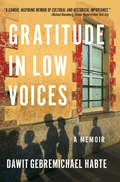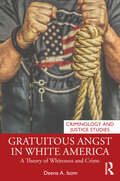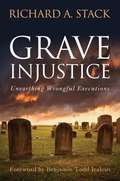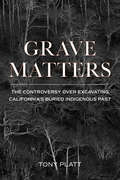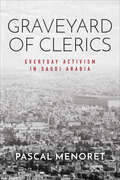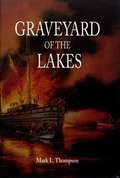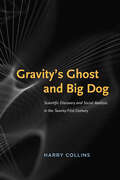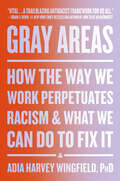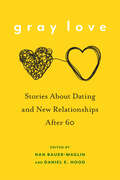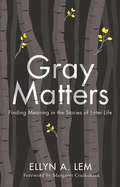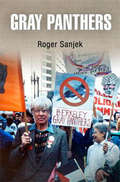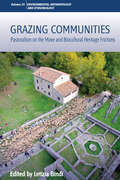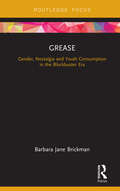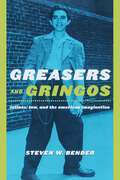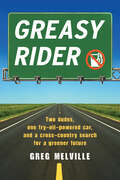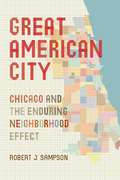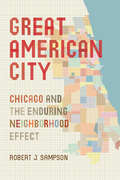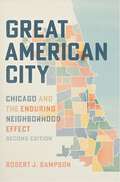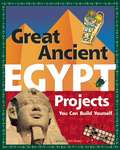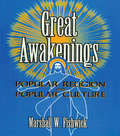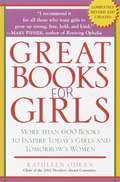- Table View
- List View
Gratitude in Low Voices: A Memoir
by Dawit Gebremichael Habte&“A candid, inspiring memoir of cultural and historical importance&” from an Eritrean-Ethiopian War refugee (Michael Bloomberg).Dawit Gebremichael Habte fled his homeland of Eritrea as a teenager. In the midst of the ongoing Eritrean-Ethiopian war, Dawit and his sisters crossed illegally into Kenya. Without their parents or documents to help their passage, they experienced the abuse and neglect known by so many refugees around the world. But Dawit refused to give up. He stayed resilient and positive. Journeying to the United States under asylum—and still a boy—Dawit found a new purpose in an unfamiliar land. Against impossible odds, he studied hard and was accepted to Johns Hopkins University, eventually landing a job as a software engineer at Bloomberg. After a few years, with the support of Michael Bloomberg himself, Dawit returned to his homeland to offer business opportunities for other Eritreans. Dawit found a way to help his ancestral land emerge from thirty years of debilitating war.Gratitude in Low Voices is about how one man was marginalized, but how compassion and love never abandoned him. It&’s about learning how to care for family, and how to honor those who help the helpless. This account reminds us that hope is not lost. &“An inspiring memoir by Dawit Gebremichael Habte, who poignantly portrays his childhood in Africa and his struggles as a refugee to the United States . . . This book is a reaffirmation of the good that people can do and how one young man succeeded despite the odds against him.&”—Foreword Reviews
Gratuitous Angst in White America: A Theory of Whiteness and Crime (Criminology and Justice Studies)
by Deena A. IsomGratuitous Angst in White America presents a new criminological theory that explains the racialized experiences of white people. Unlike orthodox traditions that assume whiteness as normative or progressive traditions that center the experiences of the marginalized and oppressed, the theory of whiteness and crime flips those perspectives and turns a lens toward white people’s lived experiences and the ideologies of whiteness. The theory of whiteness and crime answers two overarching questions: How does being white impact one’s likelihood of engaging in deviant, criminal, and/or violent behaviors? And, why are white people treated differently than other racial and ethnic groups by the criminal legal system? Through the application of a critical whiteness perspective to criminology, the theory of whiteness and crime is an intersectional and integrated framework that explains within (and between) group differences in negative behaviors and entanglements with the criminal legal system.This book examines the racialized history of America to contextualize the current racial strife in society and inform a more nuanced theoretical approach to explaining disparities. The reader will gain a socio-historical understanding of the depths of the current divides and insight into how such are perpetuated and potentially dismantled. Students will see connections between various theoretical traditions and an application of theory to current social conditions. Researchers will acquire a new theoretical foundation and propositions to ground empirical work that will fill extensive gaps in the criminological literature. And policy makers will see how oversights in understanding the depths of historical significance perpetuate and increase disparities and disadvantages, which are counter to a pursuit of justice.Written in a compelling and direct way, this book will appeal to those in criminology, sociology, race and ethnic studies, gender and sexuality studies, political science, cultural studies, psychology, criminal justice, law, and beyond. Gratuitous Angst in White America is essential for those seeking a more complete understanding of the associations between race and crime and those who want to remedy those disparities. In the end, it is more than a new theory of crime, it is a call to action for all willing to hear.
Grave Injustice: Unearthing Wrongful Executions
by Richard A. StackOn September 21, 2011, the controversial execution of Georgia inmate Troy Davis, who spent twenty years on death row for a crime he most likely did not commit, revealed the complexity of death penalty trials, the flaws in America’s justice system, and the rift between those who are for or against the death penalty. Davis’s execution reignited a long-standing debate about whether the death penalty is an appropriate form of justice. In Grave Injustice Richard A. Stack seeks to advance the anti–death penalty argument by examining the cases of individuals who, like Davis, have been executed but are likely innocent. By telling the stories of Jesse Tafero, Ruben Cantu, Carlos DeLuna, Cameron Todd Willingham, Larry Griffin, and others, Stack puts a human face on the ultimate and irrevocable tragedy of capital punishment. Although polls indicate Americans favor death sentences approximately three to one, many respondents change their position when presented with the facts about capital punishment. Stack’s compelling descriptions of nineteen wrongful executions illustrate the flaws of the death penalty, which, he argues, is ineffective in deterring crime and costs more than sentences of life without parole. He demonstrates that racial disparities in implementation, procedural errors, incompetent defense attorneys, and mistaken eyewitness identification lead to an alarming number of wrongful convictions. But influencing public opinion is only part of the battle to end state-sanctioned killing. Stack profiles six anti–death penalty warriors, demonstrating the range of what can be done, and what remains to be done, to move toward a more compassionate society.
Grave Matters: The Controversy over Excavating California's Buried Indigenous Past
by Tony PlattWhether by curious Boy Scouts and &“backyard archaeologists&” or competitive collectors and knowledge-hungry anthropologists, the excavation of Native remains is a practice fraught with injustice and simmering resentments. Grave Matters is the history of the treatment of Native remains in California and the story of the complicated relationship between researcher and researched. Tony Platt begins his journey with his son’s funeral at Big Lagoon, a seaside village in pastoral Humboldt County in Northern California, once O-pyúweg, a bustling center for the Yurok and the site of a plundered native cemetery. Platt travels the globe in search of the answer to the question: How do we reconcile a place of extraordinary beauty with its horrific past? Grave Matters centers the Yurok people and the eventual movement to repatriate remains and reclaim ancient rights, but it is also a universal story of coming to terms with the painful legacy of a sorrowful past. This book, originally published in 2011, is updated here with a preface by the author.
Graveyard of Clerics: Everyday Activism in Saudi Arabia (Stanford Studies in Middle Eastern and Islamic Societies and Cultures)
by Pascal MenoretThe inside story of political protest in Saudi Arabia—on the ground, in the suburbs, and in the face of increasing state repression. Graveyard of Clerics takes up two global phenomena intimately linked in Saudi Arabia: urban sprawl and religious activism. Saudi suburbia emerged after World War II as citizens fled crowded inner cities. Developed to encourage a society of docile, isolated citizens, suburbs instead opened new spaces for political action. Religious activists in particular turned homes, schools, mosques, and summer camps into resources for mobilization. With the support of suburban grassroots networks, activists won local elections and found opportunities to protest government actions—until they faced a new wave of repression under the current Saudi leadership. Pascal Menoret spent four years in Saudi Arabia in the places where today's Islamic activism first emerged. With this book, he tells the stories of the people actively countering the Saudi state and highlights how people can organize and protest even amid increasingly intense police repression. This book changes the way we look at religious activism in Saudi Arabia. It also offers a cautionary tale: the ongoing repression by Saudi elites—achieved often with the complicity of the international community—is shutting down grassroots political movements with significant consequences for the country and the world.
Graveyard of the Lakes
by Mark L. ThompsonFor the first time, a historian and seasoned mariner looks beyond the specific circumstances of individual shipwrecks in an effort to reach a clearer understanding of the economic, political, and psychological factors that have influenced the 25,000 wrecks on the Great Lakes over the past 300 years. Looking at the entire tragic history of shipwrecks on North America's expansive inland seas, from the 1679 loss of the Griffon to the mysterious sinking of the Edmund Fitzgerald in 1975, Mark L. Thompson concludes that a wreck is not an isolated event. In Graveyard of the Lakes, Thompson suggests that most of the accidents and deaths on the lakes have been the result of human error, ranging from simple mistakes to gross incompetence. In addition to his compelling analysis of the causes of shipwrecks, Thompson includes factual accounts of more than one hundred wrecks. Graveyard of the Lakes will forever change the reader's perspective on shipwrecks.
Gravity's Ghost and Big Dog: Scientific Discovery and Social Analysis in the Twenty-First Century
by Harry Collins“In part an account of sociological fieldwork among scientists in the field and part astronomy-history mystery. . . . a terrific read.” —NatureGravity’s Ghost and Big Dog brings to life science’s efforts to detect cosmic gravitational waves. These ripples in space-time are predicted by general relativity, and their discovery will not only demonstrate the truth of Einstein’s theories but also transform astronomy. Although no gravitational wave has ever been directly detected, the previous five years have been an exciting period in the field. Sociologist Harry Collins offers readers an unprecedented view of the research and explains what it means for an analyst to do work of this kind.Collins was embedded with the gravitational wave physicists as they confronted two possible discoveries—“Big Dog,” fully analyzed in this volume for the first time, and the “Equinox Event,” which was first chronicled by Collins in Gravity’s Ghost. Collins records the agonizing arguments that arose as the scientists worked out what they had seen and how to present it to the world, along the way demonstrating how even the most statistical of sciences rest on social and philosophical choices. Gravity’s Ghost and Big Dog draws on nearly fifty years of fieldwork observing scientists at the American Laser Interferometer Gravitational Wave Observatory and elsewhere around the world to offer an inspired commentary on the place of science in society today.“The physics junkie or philosophy of science enthusiast . . . will find lots to mull over.” —Science News“Makes for very entertaining reading.” —Daniel Kennefick, University of Arkansas, author of Traveling at the Speed of Thought
Gray Areas: How the Way We Work Perpetuates Racism and What We Can Do to Fix It
by Adia Harvey WingfieldGray Areas has descriptive copy which is not yet available from the Publisher.
Gray Dawn: How the Coming Age Will Transform America and the World
by Peter G. PetersonHow Aging is changing our world.
Gray Love: Stories About Dating and New Relationships After 60
by Sarah Dunn Natasha Josefowitz Erica Manfred Jonathan Ned Katz David Levy Dustin Beall Smith Paul Lauter Barbara Abercrombie Irvin Peckham Susan Ostrov Weisser Amy Rogers Phyllis Carito Mimi Schwartz Doris Friedensohn Nan Bauer-Maglin Daniel E. Hood Alice F. Freed Cynthia McVay Neil Stein Laura Broadwell Stephanie M. Brown Elizabeth Locke Candida B. Korman Margie Kaplan Hedva Lewittes Rett Zabriskie William Wiesner Phyllis Bogen Judith Ugelow Blak Linda Wright Moore Jean Y. Leung Jan Jacobson Stephanie Speer Sandi Goldie Jim Bronson Vincent Valenti Stacey Parkins Millett Eugene Roth Isabel Hill Susan O’Malley Susan Bickley Bonnie Fails Angela Page Tierl Thompson Idris WaltersGray Love narrates stories about the most common themes – searching for and (perhaps) finding love. Forty-five men and women between ages 60 and 94 from diverse backgrounds talk about dating, starting or ending a relationship, embracing life alone or enjoying a partnered one. The longing for connection as old age encroaches is palpable here, with more and more senior singles searching online. Those who find new partners explore issues that most relationships encounter at any age, as well as some that are unique to elder relationships. These include having had previous partners and a complicated and deep personal history; family and friends’ reactions to an older person’s dating; alternative models to marriage (such as sharing space or living apart); having more than one partner at the same time; one’s aging body, appearance, and sexuality; and the pressure of time and the specter of illness and death.
Gray Matters: Finding Meaning in the Stories of Later Life (Global Perspectives on Aging)
by Ellyn LemAging is one of the most compelling issues today, with record numbers of seniors over sixty-five worldwide. Gray Matters: Finding Meaning in the Stories of Later Life examines a diverse array of cultural works including films, literature, and even art that represent this time of life, often made by people who are seniors themselves. These works, focusing on important topics such as housing, memory loss, and intimacy, are analyzed in dialogue with recent research to explore how “stories” illuminate the dynamics of growing old by blending fact with imagination. Gray Matters also incorporates the life experiences of seniors gathered from over two hundred in-depth surveys with a range of questions on growing old, not often included in other age studies works. Combining cultural texts, gerontology research, and observations from older adults will give all readers a fuller picture of the struggles and pleasures of aging and avoids over-simplified representations of the process as all negative or positive.
Gray Panthers
by Roger SanjekIn 1970, a sixty-five-year-old Philadelphian named Maggie Kuhn began vocally opposing the notion of mandatory retirement. Taking inspiration from the civil rights and anti-Vietnam War movements, Kuhn and her cohorts created an activist organization that quickly gained momentum as the Gray Panthers. After receiving national publicity for her efforts--she even appeared on the Tonight Show with Johnny Carson--she gained thousands of supporters, young and old. Their cause expanded to include universal health care, nursing home reform, affordable and accessible housing, defense of Social Security, and elimination of nuclear weapons.Gray Panthers traces the roots of Maggie Kuhn's social justice agenda to her years as a YWCA and Presbyterian Church staff member. It tells the nearly forty-year story of the intergenerational grassroots movement that Kuhn founded and its scores of local groups. During the 1980s, more than one hundred chapters were tackling local and national issues. By the 1990s the ranks of older members were thinning and most young members had departed, many to pursue careers in public service. But despite its challenges, including Kuhn's death in 1995, the movement continues today.Roger Sanjek examines Gray Panther activism over four decades. Here the inner workings and dynamics of the movement emerge: the development of network leadership, local projects and tactics, conflict with the national office, and the intergenerational political ties that made the group unique among contemporary activist groups. Part ethnography, part history, part memoir, Gray Panthers draws on archives and interviews as well as the author's thirty years of personal involvement. With the impending retirement of the baby boomers, Sanjek's book will surely inform the debates and discussions to follow: on retirement, health care, and many other aspects of aging in a society that has long valued youth above all.
Grazing Communities: Pastoralism on the Move and Biocultural Heritage Frictions (Environmental Anthropology and Ethnobiology #29)
by Letizia BindiPastoralism is a diffused and ancient form of human subsistence and probably one of the most studied by anthropologists at the crossroads between continuities and transformations. The present critical discourse on sustainable and responsible development implies a change of practices, a huge socio-economic transformation, and the return of new shepherds and herders in different European regions. Transhumance and extensive breeding are revitalized as a potential resource for inner and rural areas of Europe against depopulation and as an efficient form of farming deeply influencing landscape and functioning as a perfect eco-system service. This book is an occasion to reconsider grazing communities’ frictions in the new global heritage scenario.
Grease: Gender, Nostalgia and Youth Consumption in the Blockbuster Era (Cinema and Youth Cultures)
by Barbara Jane BrickmanThis book offers the first in-depth look at the history, social context, and industrial practices behind this teen musical phenomenon to suggest that social change, especially in terms of gender and sexuality, comes to the surface despite the film’s retro setting, blockbuster business model, and apparent nostalgic tone. The vast audience for this film over the last thirty-five years and the various "hopelessly devoted" fandoms indicate that Grease exceeds both the confines of its period and the limits of any one ideological message.
Greasers and Gringos: Latinos, Law, and the American Imagination (Critical America #8)
by Steven W. BenderAlthough the origin of the term “greaser” is debated, its derogatory meaning never has been. From silent movies like The Greaser’s Revenge (1914) and The Girl and the Greaser (1913) with villainous title characters, to John Steinbeck's portrayals of Latinos as lazy, drunken, and shiftless in his 1935 novel Tortilla Flat, to the image of violent, criminal, drug-using gang members of East LA, negative stereotypes of Latinos/as have been plentiful in American popular culture far before Latinos/as became the most populous minority group in the U.S.In Greasers and Gringos, Steven W. Bender examines and surveys these stereotypes and their evolution, paying close attention to the role of mass media in their perpetuation. Focusing on the intersection between stereotypes and the law, Bender reveals how these negative images have contributed significantly to the often unfair treatment of Latino/as under American law by the American legal system. He looks at the way demeaning constructions of Latinos/as influence their legal treatment by police, prosecutors, juries, teachers, voters, and vigilantes. He also shows how, by internalizing negative social images, Latinos/as and other subordinated groups view themselves and each other as inferior. Although fighting against cultural stereotypes can be a daunting task, Bender reminds us that, while hard to break, they do not have to be permanent. Greasers and Gringos begins the charge of debunking existing stereotypes and implores all Americans to re-imagine Latinos/as as legal and social equals.
Greasy Rider: Two Dudes, One Fry-Oil-Powered Car, and a Cross-Country Search for a Greener Future
by Greg MelvilleIs it possible to drive coast-to-coast without stopping at a single gas pump? Journalist Greg Melville is determined to try. With his college buddy Iggy riding shotgun, this green-thinking guy—who's in love with the idea of free fuel—sets out on an enlightening road trip. The quest: to be the first people to drive cross-country in a french-fry car. Will they make it from Vermont to California in a beat-up 1985 Mercedes diesel station wagon powered on vegetable oil collected from restaurant grease Dumpsters along the way? More important, can two guys survive 192 consecutive hours together? Their expedition on and off the road includes visits to the solar-powered Google headquarters; the National Ethanol Council; the wind turbines of southwestern Minnesota; the National Renewable Energy Lab; a visit to one of the first houses to receive platinum certification for leadership in Energy and Environmental Design (LEED); an "eco-friendly" Wal-Mart; and the world's largest geothermal heating system. Part adventure and part investigation of what we're doing (or not doing) to preserve the planet, Greasy Rider is upbeat, funny, and full of surprising information about sustainable measures that are within our reach.
Great American City
by Robert J. SampsonFor over fifty years numerous public intellectuals and social theorists have insisted that community is dead. Some would have us believe that we act solely as individuals choosing our own fates regardless of our surroundings, while other theories place us at the mercy of global forces beyond our control. These two perspectives dominate contemporary views of society, but by rejecting the importance of place they are both deeply flawed. Based on one of the most ambitious studies in the history of social science, Great American City argues that communities still matter because life is decisively shaped by where you live. To demonstrate the powerfully enduring impact of place, Robert J. Sampson presents here the fruits of over a decade’s research in Chicago combined with his own unique personal observations about life in the city, from Cabrini Green to Trump Tower and Millennium Park to the Robert Taylor Homes. He discovers that neighborhoods influence a remarkably wide variety of social phenomena, including crime, health, civic engagement, home foreclosures, teen births, altruism, leadership networks, and immigration. Even national crises cannot halt the impact of place, Sampson finds, as he analyzes the consequences of the Great Recession and its aftermath, bringing his magisterial study up to the fall of 2010. Following in the influential tradition of the Chicago School of urban studies but updated for the twenty-first century, Great American City is at once a landmark research project, a commanding argument for a new theory of social life, and the story of an iconic city.
Great American City: Chicago and the Enduring Neighborhood Effect
by Robert J. SampsonFor over fifty years numerous public intellectuals and social theorists have insisted that community is dead. Some would have us believe that we act solely as individuals choosing our own fates regardless of our surroundings, while other theories place us at the mercy of global forces beyond our control. These two perspectives dominate contemporary views of society, but by rejecting the importance of place they are both deeply flawed. Based on one of the most ambitious studies in the history of social science, Great American City argues that communities still matter because life is decisively shaped by where you live. To demonstrate the powerfully enduring impact of place, Robert J. Sampson presents here the fruits of over a decade’s research in Chicago combined with his own unique personal observations about life in the city, from Cabrini Green to Trump Tower and Millennium Park to the Robert Taylor Homes. He discovers that neighborhoods influence a remarkably wide variety of social phenomena, including crime, health, civic engagement, home foreclosures, teen births, altruism, leadership networks, and immigration. Even national crises cannot halt the impact of place, Sampson finds, as he analyzes the consequences of the Great Recession and its aftermath, bringing his magisterial study up to the fall of 2010. Following in the influential tradition of the Chicago School of urban studies but updated for the twenty-first century, Great American City is at once a landmark research project, a commanding argument for a new theory of social life, and the story of an iconic city.
Great American City: Chicago and the Enduring Neighborhood Effect
by Robert J. SampsonGreat American City demonstrates the powerfully enduring impact of place. Based on one of the most ambitious studies in the history of social science, Robert J. Sampson’s Great American City presents the fruits of over a decade’s research to support an argument that we all feel and experience every day: life is decisively shaped by your neighborhood. Engaging with the streets and neighborhoods of Chicago, Sampson, in this new edition, reflects on local and national changes that have transpired since his book’s initial publication, including a surge in gun violence and novel forms of segregation despite an increase in diversity. New research, much of it a continuation of the influential discoveries in Great American City, has followed, and here, Sampson reflects on its meaning and future directions. Sampson invites readers to see the status of the research initiative that serves as the foundation of the first edition—the Project on Human Development in Chicago Neighborhoods (PHDCN)—and outlines the various ways other scholars have continued his work. Both accessible and incisively thorough, Great American City is a must-read for anyone interested in cutting-edge urban sociology and the study of crime.
Great Ancient EGYPT Projects
by Carmella Van VleetFrom reed boats, papyrus, and amulets, to pyramids, pharaohs, and mummies, Great Ancient Egypt Projects You Can Build Yourself explores the fascinating lives of ancient Egyptians through more than25 hands-on building projects and activities. Great Ancient Egypt Projects You Can Build Yourself gives readers today a chance to experience how the ancient Egyptians lived, cooked, worked, worshipped, entertained themselves, and interacted with their neighbors through building projects that use common household supplies.Detailed step-by-step instructions, diagrams, and templates for creating each project are combined with historical facts and anecdotes, biographies, and trivia for the real-life models of each project. Together they give kids a first-hand look at daily life in ancient Egypt.
Great Awakenings: Popular Religion and Popular Culture
by Frank Hoffmann Marshall Fishwick Beulah B RamirezAs religious fervor grows, Dr. Fishwick, a recipient of the Ray and Pat Browne Award for Lifetime Achievement from The American Culture Association, takes a sweeping look at religion in the United States--the country with the highest church attendance in the Western world. Popular religion can take many shapes and forms. It can wax and wane, but it cannot be eliminated or ignored. That is what prompted him to write Great Awakenings: Popular Religion and Popular Culture.He ponders how religion affects American life and popular culture, and why religion has become a major force in contemporary politics. How has the Electronic Revolution furthered the religious right? What does popular religion tell us about popular culture? And about our faith?He identifies and explores five great religious revivals or “Great Awakenings:” the Atlantic Seaboard Awakening the Urban Awakening the Modernist Awakening the Celebrity Preacher Awakening the Electronic AwakeningFishwick explores the current events preceding and during each awakening, its leaders, followers, and critics. Great Awakenings gives a new understanding of the American religious past and leaves us with an anticipation for the next great awakening.
Great Books for Girls
by Kathleen OdeanCompletely revised and updated with nearly 300 new titles, this volume remains a valuable tool for anyone who wants to help shape the literary life of a young girl.
